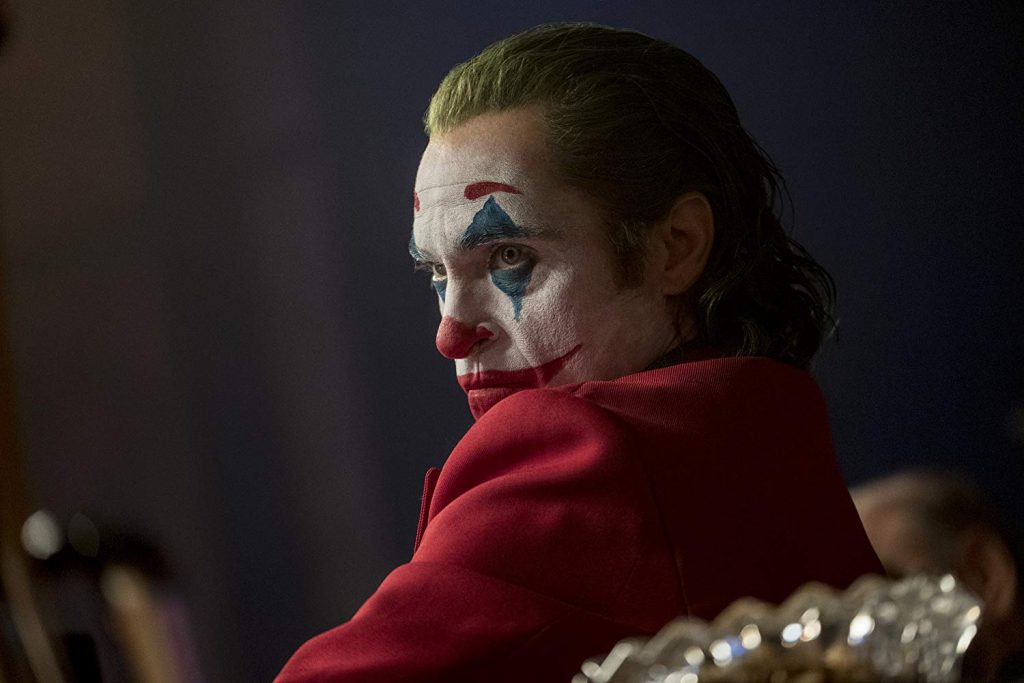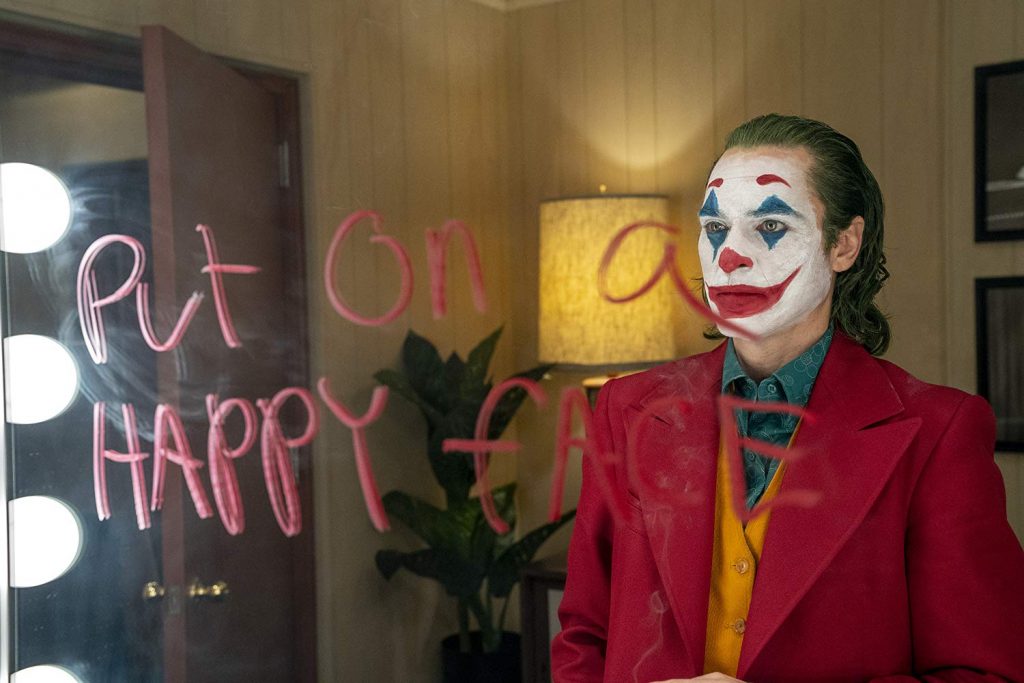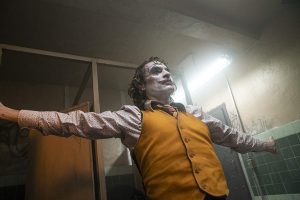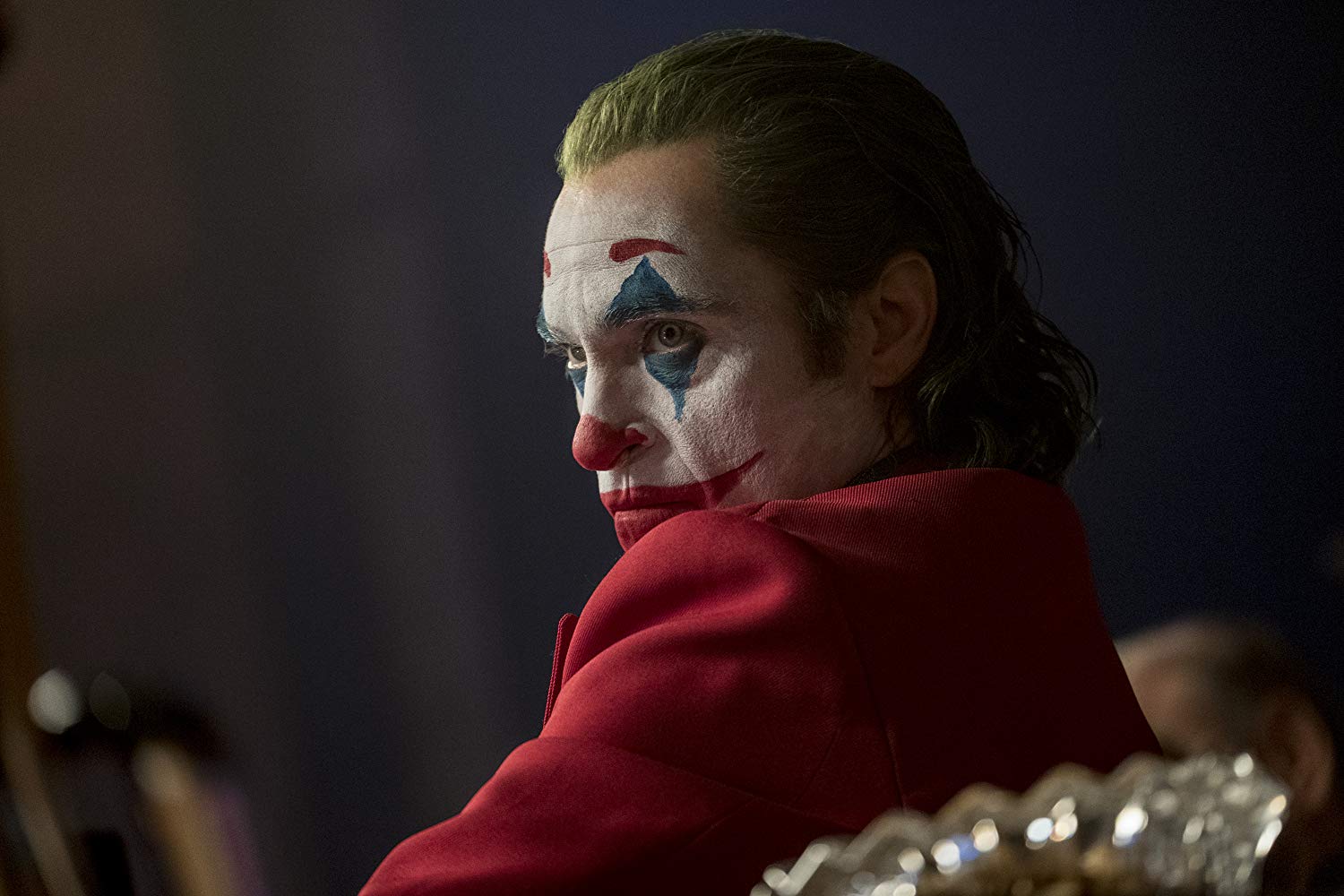Joaquin Phoenix’s Joker is the Quintessential Anti-Batman
Spoiler Alert! This article contains spoilers for Joker

The fight between the Caped Crusader and the Clown Prince of Crime has been portrayed in film as a battle for Gotham’s soul. In 1989’s Batman, the Joker attempted to capture the heart of the people with the false promise of freedom in a grand parade. The Dark Knight showed the Joker using terrorism to promote anarchy in opposition to Batman’s moral statutes of justice and order. The two have circled each other time and time again in an endless duel.
Joker: The Mirror Image of Batman

Throughout both comic and film, the actions of Batman and Joker have inspired the city to bring about change under opposing ideals. Despite its portrayal of Bruce Wayne as a pre-bat child, Joker continued this idea of the two Gotham vigilantes mirroring each other.
Bruce Wayne becoming the Batman helped bring about a new and hardened position against crime and chaos (two factors that contributed to his parents’ death). Arthur Fleck becoming the Joker encouraged resistance and anarchy against the system he felt had wronged him his entire life.
The two used violence diametrically. Fleck’s Joker fought his enemies with ruthlessness and desperation, while Batman used restraint and dignity in his pursuits.
Mental illness exhibited itself clearly in the two Gothamites. Bruce Wayne suffered from PTSD and depression, while Arthur Fleck dealt with delusional disorder and pathological laughter.
These polar opposites always resulted in what Heath Ledger’s Joker called “an unstoppable force [meeting] an immovable object.”
Joker: The Clown Prince’s First Taste of On-Screen Victory

What Todd Phillip’s film arguably explored the most was if this unstoppable force had no immovable object in its path. Joker presented a Gotham with no Batman, an incompetent police force, and tinder to fuel the fire that needed only a spark to ignite into flames.
One could even argue that the city as a whole was used as the Joker’s antagonist. Multiple establishments of Gotham betrayed and pushed Arthur to become the clown prince.
Medical Institution: The mental health wing of Arkham State Hospital did little to help Arthur with his mental illness, and eventually closed down due to city budget cuts.
The Wealthy: When Arthur tried to speak to Thomas Wayne about his parental origins, the billionaire and city mayor candidate spoke rudely of Fleck’s mother and dismissed him. The subway passengers who attacked Arthur because of his laughter disorder were Wall Street workers who carried a sense of arrogance with their status.
Everyday Citizens: Multiple people made rude comments towards Arthur while he worked as a sign-spinning clown on Gotham’s streets. He was eventually attacked and left bruised and beaten in a cold alley at the hands of a few random teenagers.
Employment: Arthur’s job at Ha Ha’s was infected with coworkers who mistreated him, and a boss who could have cared less about his well-being.
Entertainment: Robert De Niro’s character Murray Franklin hosted a night show in Gotham, and used his live television platform to mock Arthur’s comedy stand-up routine. He even had the audacity to invite the comedian onto his show for the sole purpose of ridiculing him.
Police: The detectives who followed Arthur after he entered his life of crime failed to treat him with respect. It also appears that they could have triggered Arthur’s mother to enter into a stroke due to their provocative questioning tactics.
Family: Even Arthur’s closest institution turned out to be darker and twisted than he ever could have imagined. The ambiguity of his true father’s identity was a central struggle that Arthur dealt with. When the truth surfaced, it did nothing but turn him against his own mother who was revealed to have suffered from delusional disorder. Not only did she cover up that Arthur was adopted, but she also abused her son from a young age.
One by one, Arthur defeated these institutions as he slowly claimed victory over Gotham’s soul through direct murder or blood spilled by the hands of inspired followers. No vigorous Commissioner Gordon on the scene, no inspired District Attorney Harvey Dent to defend the just, and no Batman to save the day. In Todd Phillip’s Joker, the dark enveloped Gotham and the Clown Prince finally got the last laugh.

